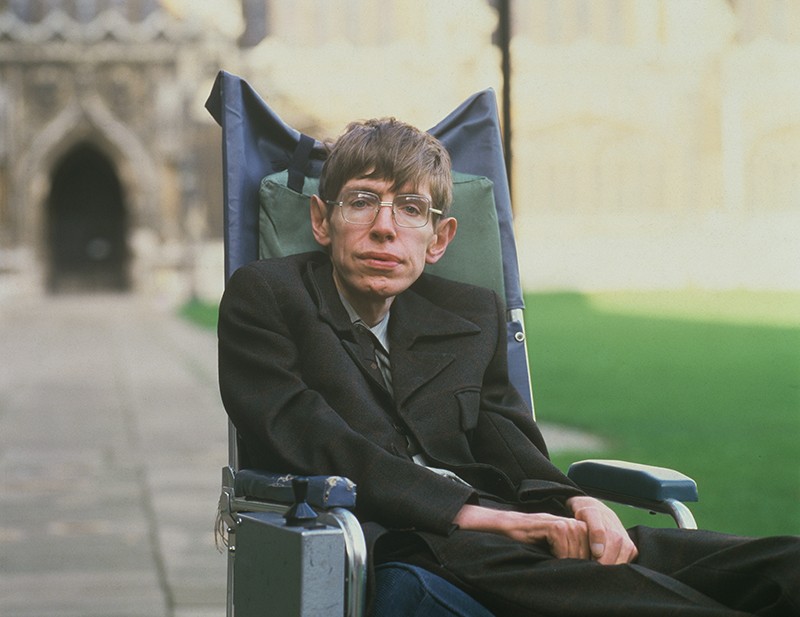This entry from Think Free was last updated 2011/10/29. Since then Stephen Hawking has passed on, so I have revised accordingly. —MC
Stephen Hawking (1942-2018) was a leading British theoretical physicist and summarizer of recent ideas in physics. His bestselling book, A Brief History of Time (1988, 1996), helped to catapult him into the public eye.

In that work, Hawking didn’t entirely dismiss the idea of God. However, his comments about God were usually limited to theories that ultimately involve observation by the conventional senses (e.g. The Big Bang, Black Holes, Relativity, the Beginning and End of Time).
Not much serious discussion is given to the possibility of immanent, spiritual powers and realms existing beyond yet influencing our observable universe. Perhaps this isn’t surprising. After all, Hawking stood out as a physicist, not as a mystic or theologian.
Talking about the afterlife, he said in a rather insulting way that it is a
However, the impressionable public almost made a god out of him, I think in part because he so impressively overcame his physical disability. As heroic as this was, it should not make someone exempt from having the content of their speech assessed from different perspectives.

Having said that, Hawking was open-minded enough to rethink the nature of time and consider the possibility of backward causality. And his use of the phrase “angel eye’s view” to describe this process suggests he was not averse to using metaphors that, at least for some, would point to spirituality beyond sensory and conceptual realities (even if Hawking’s use here does seem entirely literary and whimsical):
Observations of final states determine different histories of the universe… A worm’s-eye view from inside the universe would have the normal causality. Backwards causality is an angel’s-eye view from outside the universe.¹
Later, in the “Curiosity” TV series Hawking said our universe possibly has no need for an intelligent creator.
The laws of nature themselves tells us that not only can the universe have popped into existence like a proton and have required nothing in terms of energy but also that it is possible that nothing caused the big bang.²

As I say, Hawking attained celebrity and an almost god-like status that inspired many. But for me, he was an unusually bright physicist and exceptional person arguably unaware of the highest reality that not only creates but also sustains life and the measurable universe.
My feeling is that when good people like Hawking reach the afterlife, they are pleasantly surprised to find that they were mistaken. Any good scientist would have to accept the fact that they are still alive and conscious after the physical body dies.
As for the bad apples among us, I do not believe they are pleasantly surprised but rather dismayed and sometimes horrified to find what awaits them.

¹ New Scientist, “Exploring Stephen Hawking’s Flexiverse” 20 April 2006, Amanda Gefter, cited at http://okgrouputer.blogspot.com/2006/05/heisenberg-lsd-stephen-hawkings.html.
To this Rob MacRiner adds:
Answer to Question: Why does time seem to exist only in a forward direction?
Time seems to only exist in a forward direction because the universe is expanding. If the Universe reaches Critical Velocity and starts to contract ….then time, as we measure time will reverse according to the Big Bang / Big Crunch Theory. » See in context
² http://www.christianpost.com/news/stephen-hawking-something-out-of-nothing-is-possible-53589/ More recently, the very idea of the “big bang” has come under increased scrutiny, some saying that it’s just another myth not unlike any other.
Related » Parallel universes, Process Theology

Edit – tightened up this sentence to the current:
“As heroic as this was, it should not make someone exempt from having the content of their speech assessed from different perspectives.”
LikeLike